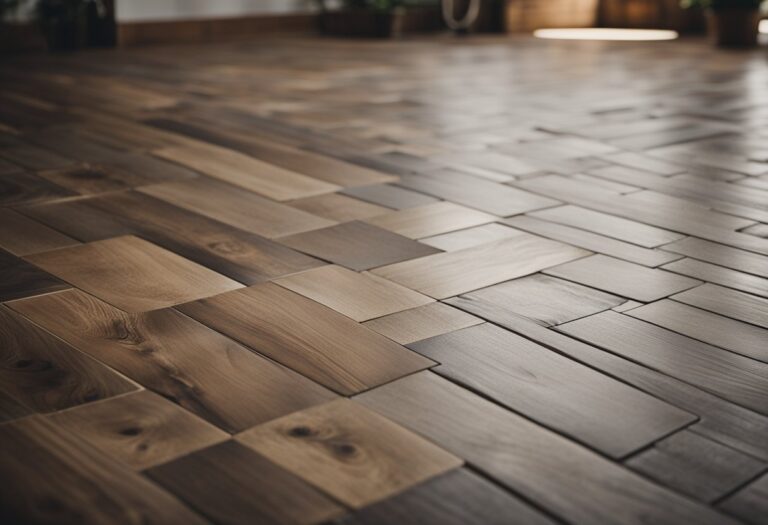Artisanal tiles are a unique and beautiful addition to any home. These tiles are handcrafted by skilled artisans, resulting in one-of-a-kind pieces that add character and charm to floors, walls, and other surfaces. Artisanal tiles are made using traditional techniques that have been passed down through generations, ensuring that each tile is crafted with care and attention to detail.

One of the benefits of artisanal tiles is their uniqueness. Each tile is different, with its own individual characteristics and imperfections. This means that no two floors, walls, or surfaces will look exactly the same, adding a touch of personality and individuality to any space. Artisanal tiles are also available in a wide range of colors, patterns, and designs, allowing homeowners to create a truly customized look that fits their style and preferences.
Another advantage of artisanal tiles is their durability. These tiles are made using high-quality materials and traditional techniques, resulting in a product that is built to last. They are resistant to wear and tear, making them ideal for high-traffic areas such as kitchens and bathrooms. Additionally, because they are handmade, artisanal tiles are often thicker and heavier than mass-produced tiles, providing an added layer of durability and strength.
The Art of Artisanal Tiles

Defining Artisanal Tiles
Artisanal tiles are handcrafted tiles that are made by skilled craftsmen. These tiles are unique and one-of-a-kind, as they are created using traditional techniques and methods. Artisanal tiles are known for their beauty, durability, and uniqueness, and are often used in high-end residential and commercial projects.
Historical Context
The art of making artisanal tiles dates back to ancient civilizations, where tiles were used as a form of decoration and art. In the Middle Ages, tiles were used in churches and castles, and were often decorated with intricate designs and patterns. During the Renaissance, tiles became more popular and were used in homes and public buildings.
Today, artisanal tiles are still made using traditional methods, but with modern technology and equipment. Skilled craftsmen use their expertise to create tiles that are not only beautiful, but also functional and durable.
Manufacturing Process
The manufacturing process of artisanal tiles involves several steps. First, the clay is prepared and molded into the desired shape. Then, the tiles are fired in a kiln to harden them and make them durable. After firing, the tiles are glazed and decorated with intricate designs and patterns.
One of the benefits of artisanal tiles is that they can be customized to meet the specific needs and preferences of the customer. This means that customers can choose from a wide variety of colors, shapes, sizes, and designs to create a unique and personalized look for their floors.
In conclusion, artisanal tiles are a beautiful and unique option for those who want to add a touch of elegance and sophistication to their floors. With their durability, functionality, and customization options, artisanal tiles are a great investment for any home or commercial project.
Incorporating Artisanal Tiles into Your Space

Artisanal tiles can add a unique and beautiful touch to any space. They are perfect for those who want to add a touch of personality and individuality to their floors. Here are some design considerations, installation tips, and maintenance and care advice to help you incorporate artisanal tiles into your space.
Design Considerations
When considering artisanal tiles, it is important to think about the overall design of your space. You want to make sure that the tiles complement the existing elements in your room. Consider the color scheme, style, and texture of your space. Artisanal tiles come in a variety of colors, patterns, and textures, so you can choose the one that best matches your style.
Installation Tips
Installing artisanal tiles requires a bit of skill and patience. It is important to hire a professional installer who has experience with this type of tile. They will be able to ensure that the tiles are installed correctly and will last for years to come. It is also important to choose the right adhesive and grout for your tiles. Talk to your installer to determine the best products for your specific tiles.
Maintenance and Care
Artisanal tiles require proper maintenance and care to keep them looking beautiful. It is important to clean them regularly to prevent dirt and grime from building up. Use a mild soap and water to clean the tiles. Avoid using harsh chemicals or abrasive cleaners, as these can damage the tiles. It is also important to seal the tiles to protect them from stains and moisture. Talk to your installer about the best sealant for your tiles.
Incorporating artisanal tiles into your space can add a touch of beauty and individuality. By considering design, installation, and maintenance, you can ensure that your tiles look great for years to come.






